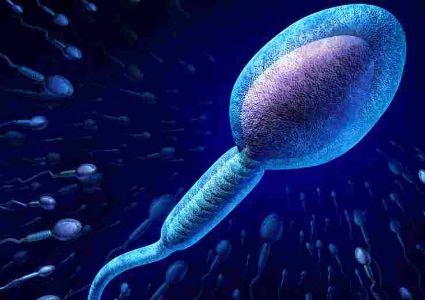Polling

Suggest an important issue not listed in this sub-category (). (Maximum 60 Characters)
Male infertility

For several decades, there has been substantial evidence that many of the chemicals used in our everyday products are harmful to our health. Recent studies have also shown these chemicals are likely to damage men’s ability to reproduce. These chemicals, known as endocrine disrupting chemicals (EDC), disrupt or interfere with our body's endocrine system including the estrogen, androgen and thyroid hormone systems. Any system in the body controlled by hormones can be damaged by these disruptors. Humans and animals depend on healthy endocrine systems to develop and reproduce normally. EDCs are found in plastics, fragrances, pesticides, the linings of food and beverage containers, fire retardants used in carpets and furniture, household cleaning, personal care products and many, many more. Health advocates say endocrine disruptors are now common throughout the world.
Nearly 800 chemicals with known or potential endocrine-disrupting properties have been identified, but little human testing has been done to determine whether or not they pose a health risk. The EPA established the Endocrine Disruptor Screening Program in 1998 but its results have been delayed for more than 20 years. EPA critics claim efforts by business and industry have been responsible for shelving this report. These entities would incur great expense if forced to find substitutes for the chemicals they use in our everyday products.
Children are also likely to be harmed by EDCs since their developing brains and bodies are especially vulnerable to EDCs. However, it is the way male fetuses form in the womb that makes men susceptible to genital birth defects. Scientists say a critical period of development is the transition from a fertilized egg into a fully formed infant. These defects include hypospadias and cryptorchidism, risk factors for low sperm quality and testicular cancer. Scientists in Europe, where this phenomenon is more prevalent than here, have coined the term “testicular dysgenesis syndrome” to describe men’s increasing rates of testicular cancer and low sperm counts. European researchers concluded that they are now 99% certain that endocrine disrupting chemicals substantially contribute to male infertility as well as many other health problems including attention deficit disorders, diabetes and obesity. Advocates say the 1976 Toxic Substances Control Act has never been updated to reflect the use of new chemicals in everyday consumer products - which have vastly changed over the past 45 years.
Proposed Legislation: S.696 - Safe Chemicals Act of 2013 (113th Congress 2013-2014)
Prospective Sponsor: Sen. Richard Durbin (IL)
Nearly 800 chemicals with known or potential endocrine-disrupting properties have been identified, but little human testing has been done to determine whether or not they pose a health risk. The EPA established the Endocrine Disruptor Screening Program in 1998 but its results have been delayed for more than 20 years. EPA critics claim efforts by business and industry have been responsible for shelving this report. These entities would incur great expense if forced to find substitutes for the chemicals they use in our everyday products.
Children are also likely to be harmed by EDCs since their developing brains and bodies are especially vulnerable to EDCs. However, it is the way male fetuses form in the womb that makes men susceptible to genital birth defects. Scientists say a critical period of development is the transition from a fertilized egg into a fully formed infant. These defects include hypospadias and cryptorchidism, risk factors for low sperm quality and testicular cancer. Scientists in Europe, where this phenomenon is more prevalent than here, have coined the term “testicular dysgenesis syndrome” to describe men’s increasing rates of testicular cancer and low sperm counts. European researchers concluded that they are now 99% certain that endocrine disrupting chemicals substantially contribute to male infertility as well as many other health problems including attention deficit disorders, diabetes and obesity. Advocates say the 1976 Toxic Substances Control Act has never been updated to reflect the use of new chemicals in everyday consumer products - which have vastly changed over the past 45 years.
Proposed Legislation: S.696 - Safe Chemicals Act of 2013 (113th Congress 2013-2014)
Prospective Sponsor: Sen. Richard Durbin (IL)
Poll Opening Date
July 4, 2022
Poll Closing Date
July 10, 2022
Democracy Rules respects the privacy of your information.
See PRIVACY STATEMENT
See PRIVACY STATEMENT